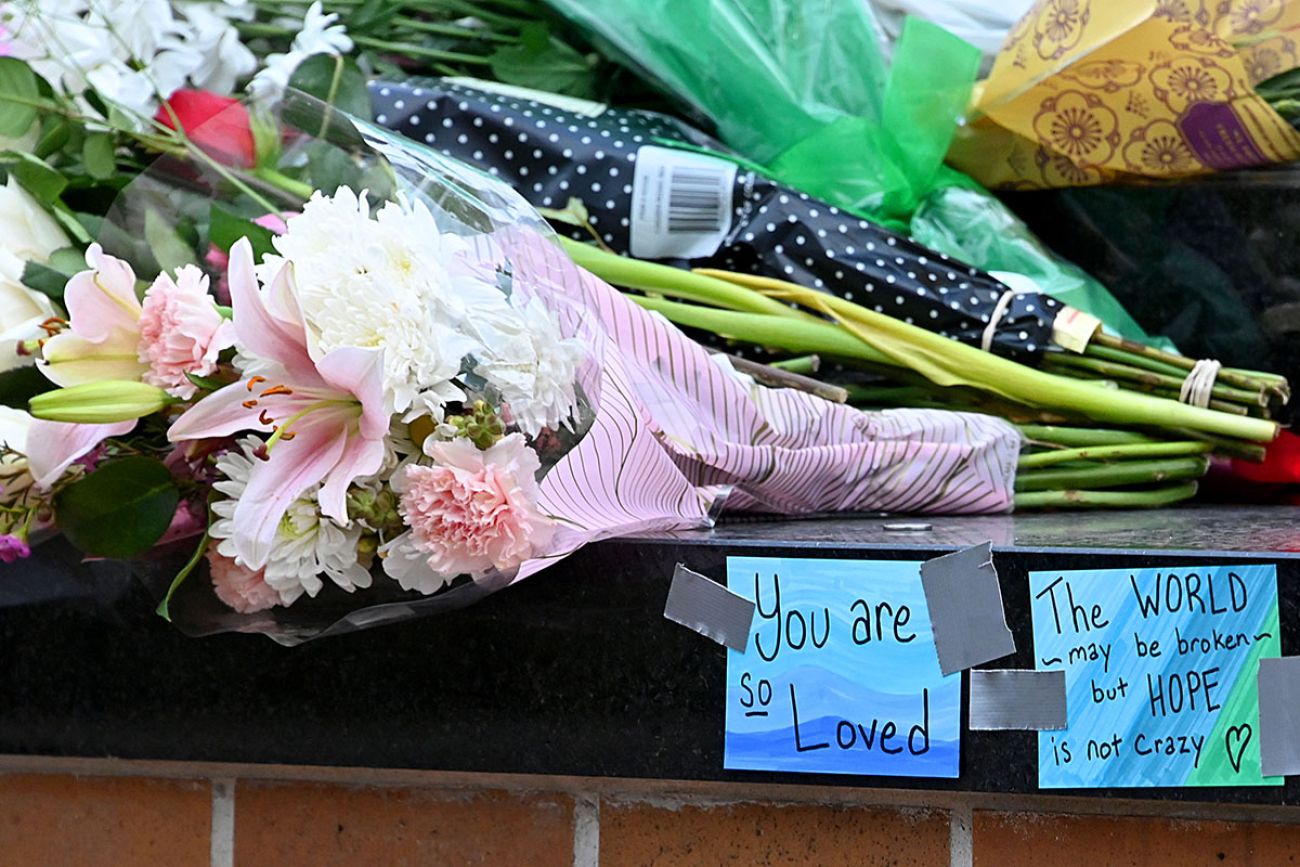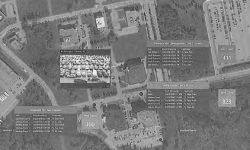Two Michigan State shooting survivors plan to sue, citing MSU negligence

- Two survivors of the Michigan State University shooting intend to sue the university for alleged ‘gross negligence’
- They say the university ‘failed to take reasonable steps” to protect people on campus from a potential mass shooting
- The court documents provide new details on the severity of the survivors’ injuries
Two critically injured survivors of the Michigan State University campus shooting say they intend to sue the university, citing more than a dozen ways they contend MSU was negligent in failing to prevent the violence.
Nate Statly and Troy Forbush were both in a Berkey Hall classroom on the evening of Feb. 13. That night, a gunman entered the room and shot and killed two students and injured several others, before leaving the building and entering the MSU Union, where he killed a third student.
Attorneys for Statly and Forbush filed notices of intent to file a claim against the university with the Michigan Court of Claims on Monday. While public entities like MSU generally have immunity that shields them from liability, the attorneys argue the university’s security failures rose to the level of “gross negligence” that pierces that legal protection.
Related:
- Michigan State plans memorial for shooting victims as part of $2M in donations
- Michigan State University expands ability to issue emergency alerts
- Records: MSU shooting lockdown delayed 10 minutes by miscommunication
In the notices, the lawyers say the university and its departments “acted with gross negligence and failed to take reasonable steps to protect students and visitors on its campus from harm.”
They argue the university allowed public access to building hours in the evening, failed to employ security guards to monitor building access, failed to install locks on the inside of classroom doors and failed to use lock systems that allowed instructors to activate locks. They also contend the university had “notice of this dangerous or defective” security environment “for a period of 90 days or longer before the injury took place.”
As Bridge Michigan first reported in March, at least two MSU faculty voiced concerns about the lack of classroom door locks at a meeting with university leadership including then-Chief of Police Marlon Lynch back in September.
The lawyers also reveal what appears to be new information on campus security, alleging students and faculty were required to prop doors open to maintain “ambient temperature” in Berkey Hall.
MSU announced in March it would install classroom locks that allow those inside to lock the doors. The school also adjusted the hours in which someone could enter a university building without a key or keycard and said it would require Active Violent Intruder Training in the future. The university began installing these locks in late May.
“Here, the University’s decision to ignore complaints — regarding the lack of restrictions, the general and public access to campus buildings, and the failure to correct known defective conditions and security measures — resulted in an unreasonably dangerous risk of injury,” the attorneys wrote. “There is no rationale as to why Michigan State University chose to ignore complaints and failed to take any corrective action to remedy the defective conditions. To state otherwise would be to deny the country’s present reality.”
In response to the court filings, MSU released a statement Tuesday saying the university is keeping in close touch with the families of shooting victims to provide “ongoing support.”
“Many lives among our community have been profoundly impacted by the violence our campus experienced,” MSU deputy spokesperson Dan Olsen said. “We are heartbroken and sorry for the tragic loss of life and each person harmed by senseless gun violence. MSU has been engaged in conversations with the families of those we lost and those injured to identify ways to provide ongoing support, and we are committed to keeping those lines of communication open.”
In the legal notice, lawyers for the injured students said the university chose not to lock buildings that could be remotely locked, including the Union, and failed to provide university and local law enforcement with keys or access cards to university buildings that were remotely locked. Bridge previously reported that MSU officials had not publicly disclosed the timing of any lockdown measures that evening.
The lawyers also noted that the university “unjustifiably” delayed communications notifying students, faculty, staff and visitors about the shootings.
As Bridge earlier reported, there was a delay of 12 to 13 minutes between the time the first frantic 911 calls came in about an active shooter and when police issued a campus-wide text message alert warning students and staff.
In those precious minutes, the shooter was able to travel from a campus classroom building where most of the violence took place and enter the student union, where the third student was killed.
Public records suggest there was a miscommunication between a shift supervisor and a police cadet working at the front desk of campus police headquarters.
The lawyers also said the university failed to have an “adequate number of security cameras to effectively monitor the campus” and that it used cameras there were unable to display footage in real time.
On the night of the shooting, it took law enforcement nearly three hours to find security camera footage that identified the gunman, which left students and others huddling for hours in dorm rooms and closets before he could be located and confronted by police. The shooter, Anthony McRae, killed himself as officers closed in, police said.
The court documents also provide new details about the severity of Forbush and Statly’s injuries. The students were both juniors during Spring 2023, according to their lawyers. Statly is a graduate of Hartland Consolidated Schools in Howell and Forbush graduated from Okemos High School.
Statly, an environmental biology and zoology student, spent several weeks in Michigan hospitals and is currently receiving inpatient care at a facility in Chicago.
Statly was shot in the head, where a bullet entered above his right ear, the court document said. Fragments of the bullet remain in his brain while the core of the bullet is near the center of his brain. He is currently unable to speak, walk, eat whole foods or use the left side of his body. He has experienced “significant” weight loss, the closure of his right ear canal, and the closure of his right eye.
Forbush, a music education and vocal performance student, was the first of the injured students to be discharged from Sparrow Hospital in Lansing. He spoke at a gun reform rally in March where he described pleading for his life with the gunman.
Forbush experienced injuries to this chest cavity and lungs, his lawyers wrote. This has led to tracheobronchial mucus plugs and lung consolidation, permanent scarring, post-traumatic stress disorder, pain and other results including a “significant loss of enjoyment of life.”
Statly and Forbush are expected to need additional medical care in the future, the lawyers wrote.
Erin Estrada, assistant to Mick Grewal, one of the lawyers for the survivors, said Tuesday that he would not be offering comment at this time, instead letting the documents speak for themselves.
Michigan Education Watch
Michigan Education Watch is made possible by generous financial support from:
Subscribe to Michigan Education Watch
See what new members are saying about why they donated to Bridge Michigan:
- “In order for this information to be accurate and unbiased it must be underwritten by its readers, not by special interests.” - Larry S.
- “Not many other media sources report on the topics Bridge does.” - Susan B.
- “Your journalism is outstanding and rare these days.” - Mark S.
If you want to ensure the future of nonpartisan, nonprofit Michigan journalism, please become a member today. You, too, will be asked why you donated and maybe we'll feature your quote next time!





